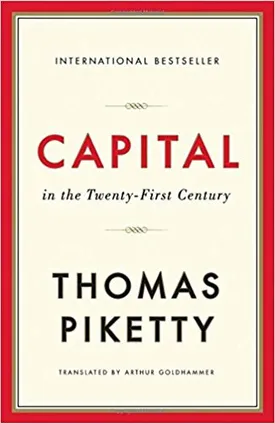Thomas Piketty
Thomas Piketty is a renowned economist and the author of the groundbreaking book, Capital in the Twenty-First Century. His work focuses on modern economic inequality and its implications. Piketty has authored a number of books and articles on the subject, and he has become one of the world’s most influential thinkers and popular intellectuals.
Piketty was born on May 7, 1971 in Clichy, France. In 1994, he earned a Ph.D. in Economics from the École des Hautes Études en Sciences Sociales in Paris. This was followed by a two-year post-doc at the London School of Economics and Political Science.
Piketty’s research centers on the themes of income and wealth inequality and their effects on economic growth and social mobility. His research often concludes that unequal distribution of wealth and income can lead to slower growth and diminished opportunity for lower-income earners. His important book, Capital in the Twenty-First Century, has been widely praised and has become a major source of academic and public debate.
Piketty is highly respected in the academic world and his publications on his various topics have prompted considerable debate among economists and political scientists. His contribution to the popularization of economics and the attempt to understand our economic system has reached far beyond the academic realm. His international renown has made him a figure of interest and admiration among the general public.
Piketty is currently a professeur des universités at the École des Hautes Études en Sciences Sociales, where he has been a faculty member since 2006. In addition to teaching and writing about economics, he is also a visiting Professor of Economics at the Harvard Department of Economics, a John Francis Bates Distinguished Chair at the Paris School of Economics, and the director of the Paris School of Economics Inequality Chair. He is also an international Consultant of the French Ministry of Economy and Finance.
In Capital in the Twenty-First Century, one of his most famous works, Piketty examines inequality in different countries and over time, highlighting the implications of this inequality on economic growth and social mobility. He claims that when the rate of return to capital is higher than the rate of economic growth, the concentration of wealth in a few hands will rise exponentially. This result is inevitable, he argues, unless economic growth rises faster than the rate of return to capital.
Piketty has not merely presented his position in dry, technical terms. He provides a detailed analysis of the distribution of wealth and income around the world and the historical development of inequality. He stages a convincing argument for why we should be concerned about the current levels of inequality, and he outlines several potential strategies for tackling the issue.
Piketty has made an invaluable contribution to our understanding of the dynamics of wealth and income inequality. It is hard to overstate the impact that his major works have had both in the academic world and on debates surrounding economic inequality. The structure of Piketty’s remarkable work demands that readers input more than just their intellect. His work will continue to influence the general discussion about economic inequality for years to come.

